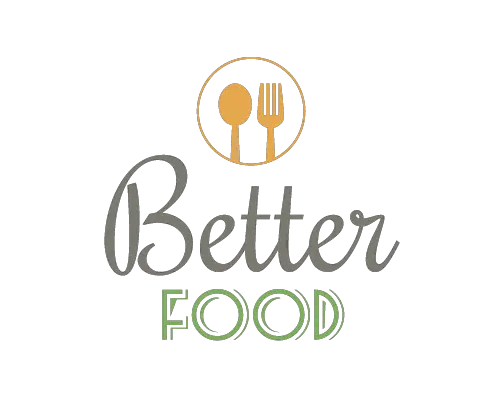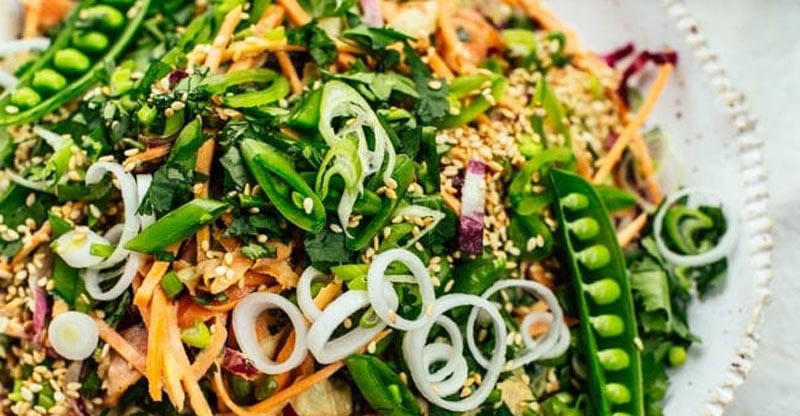Can you eat undercooked or raw potatoes?
Yes!
Should you eat them frequently and in large amounts?
Probably not.
Potatoes are one of the most versatile foods on the planet. Over the last few centuries they’ve become a staple in the diets of many cultures worldwide.
But an ingredient you often don’t see incorporated into many dishes is raw or undercooked potatoes — and there is actually a reason for this!
While you’ll be able to find the occasional salad or gourmet dish that uses raw potatoes, most in the food industry tend to avoid them. This is because large volumes of potatoes that are not fully cooked can cause digestive discomfort and, in extreme circumstances, damaging symptoms.

Occasionally eating undercooked potatoes is unlikely to cause sickness or any long-lasting effects on your health. But raw potatoes do have compounds in them that can cause issues in large concentrations. These compounds break down with heat, which is why eating cooked potatoes is perfectly fine (and delicious)!
In this article, we are going to explore the science surrounding raw potatoes, and whether or not you should be using them in meals.
Are There Any Benefits to Eating Undercooked Potatoes?
Levels of resistant starch are much higher in raw or undercooked potatoes when compared to cooked potatoes. This resistant starch isn’t broken down in your body and it feeds the good bacteria in your gut, which is beneficial to a healthy digestive system.
Further, undercooked potatoes also:
- Improve insulin sensitivity
- Lower blood sugar levels
- Increase satiety
- Are higher in Vitamin C than cooked potatoes
Raw and undercooked potatoes do tend to have a more bitter taste which can be unappealing to some. Therefore, there's no need to force yourself to eat the raw vegetable for its nutritional benefits if you'd rather eat the cooked variety (which is packed with healthy nutrients too!).
We love potatoes! Check out this recipe for pressure cooker mashed potatoes on our blog.
Can I Get Sick From Eating Undercooked Potatoes?
One serving of raw or undercooked potato is unlikely to cause any acute or long-lasting damage to your health. However, uncooked potatoes contain higher levels of a compound that is rich in nitrogen called solanine.
Solanine is a glycoalkaloid, and the potato’s own defense mechanism against pathogens and predators. It causes a bitter and unpleasant taste that discourages animals from taking a bite and has properties that prevent the invasion of bacteria and fungi.
Potatoes aren’t the only food that has solanine — berries, capsicum, tobacco, and tomatoes also contain some.
Eating a small amount of solanine is pretty harmless (i.e., the amount in a raw commercial potato).
Yet, in high doses solanine can be neurotoxic and lead to a myriad of issues that impact the digestive system and the brain, such as:
- Increased sensitivity
- Drowsiness
- Bloating
It's unlikely you'll find high doses of solanine in a single serving of raw potatoes, which generally contain 0.2mg per gram. Levels found to be toxic in humans are between 200-400 mg (20-40 mg for children), so you’d have to eat a lot of undercooked potatoes to feel any severe impact!
How Can I Avoid Getting Sick From Eating Undercooked Potatoes?
Thoroughly cooking potatoes is the best way to reduce glycoalkaloid concentration.
Compounds like solanine tend to begin to degrade and break down at just under 340 degrees Fahrenheit (170 degrees Celsius). It’s best to make sure you cook your potatoes all the way through before you take a bite.
If you’re worried about undercooking your potatoes, a food thermometer is a useful tool. Pierce your spud to ensure the internal temperature is above that 340 degrees needed to degrade solanine.
It’s worth noting that undercooked potatoes do not have the same solanine content as raw potatoes. The starch has already been partially broken down and solanine in small concentrations is unlikely to have any major impact on your health.
If you take a bite into a potato and notice a bitter or sour taste, this is a sure sign of higher-than-usual levels of solanine. Even if the potato is fully cooked, this bitter taste is likely to lead to digestional discomfort so it is best that you throw it away.
Solanine is in its highest concentration in green potatoes, so it’s a good idea to avoid these wherever possible.
Potatoes can go green when stored improperly (e.g., exposure to too much light or kept at too high a temperature). Cooking these potatoes does little to reduce their glycoalkaloid content — so it’s best to just compost them and not take the risk.

Take it a step further:
Remove large imperfections such as significant cuts, bruises, or rotting from your potatoes before cooking them.
Peel potatoes if you notice abnormalities on the skin, as solanine tends to be in its highest concentration in these areas.
Roasting and baking are two common ways to prepare potatoes. Read: What is the difference between Roasting and Baking?
Final Thoughts
As with most foods, potatoes have their place in a balanced and healthy diet. There are so many ways to prepare them — from a good old baked potato, to steamed and mashed, or air-fried potato — there are endless options to enjoy.
Raw potato is rarely in recipes or on menus. This is because despite being nutrient-rich, uncooked (or undercooked) potatoes contain solanine. In high concentrations, solanine can cause toxic symptoms in humans and animals.
You won't find these high concentrations of solanine in your standard serving or commercial potatoes. Unless you’re consuming pounds of raw/undercooked potatoes per week you’re unlikely to feel an effect on your health — a little digestional discomfort at most.
Frequently Asked Questions (FAQs)
Why Would a Recipe Use Raw Potato?
Raw potato can add a unique texture and taste to many dishes, and from a scientific perspective, its nutritional content is pretty superb. Solanine content of foods is a good component of your diet to be aware of, but it’s not something that should scare you away from a particular ingredient.
The bottom line is if your favorite salad has shavings of raw potato — enjoy it. If you’d rather stick to a soft or crunchy cooked potato, continue embracing the soft or crunchy goodness!
How To Fix Your Undercooked Potatoes?
There are different techniques to fix your undercooked potatoes.
Here are a few methods you can use to improve your undercooked potatoes:
Cook your potatoes with a bit of milk, cream, or cheese to soften the lumps
Cut them into little chunks and bake them
Boil your potatoes on low heat until soft
You can continue cooking the potatoes by putting them in the microwave at a moderate temperature for less than 15 minutes
Frying them is also an acceptable method to ensure your potatoes are properly cooked
Different Ways To Use Undercooked Potatoes?

We have discussed the various ways to fix your undercooked potatoes but did you know you can use undercooked potatoes in multiple ways?
You can use undercooked potatoes to prepare many dishes – you can avoid the undercooked potatoes problem while enjoying delicious meals.
The following are the different ways you can use undercooked potatoes:
- You can make fries out of undercooked potatoes
- Undercooked potatoes are a vital ingredient for grilled potatoes
- You can effectively use undercooked potatoes to make potato pizza
Why Are Potatoes Good for You?
Potatoes are packed with various nutrients, we don’t recommend you remove them from your diet.
So let's take a look at some of the benefits of eating potatoes, shall we?
- Potatoes are filled with vitamins and minerals
- They contain antioxidants that neutralize harmful molecules and reduce the risk of chronic diseases like diabetes and heart disease
- The resistant starch in potatoes may improve and control your blood sugar
- Potatoes can improve your digestive health
- Potatoes are good for you if you follow a gluten-free diet
- You can make potatoes in a variety of ways

